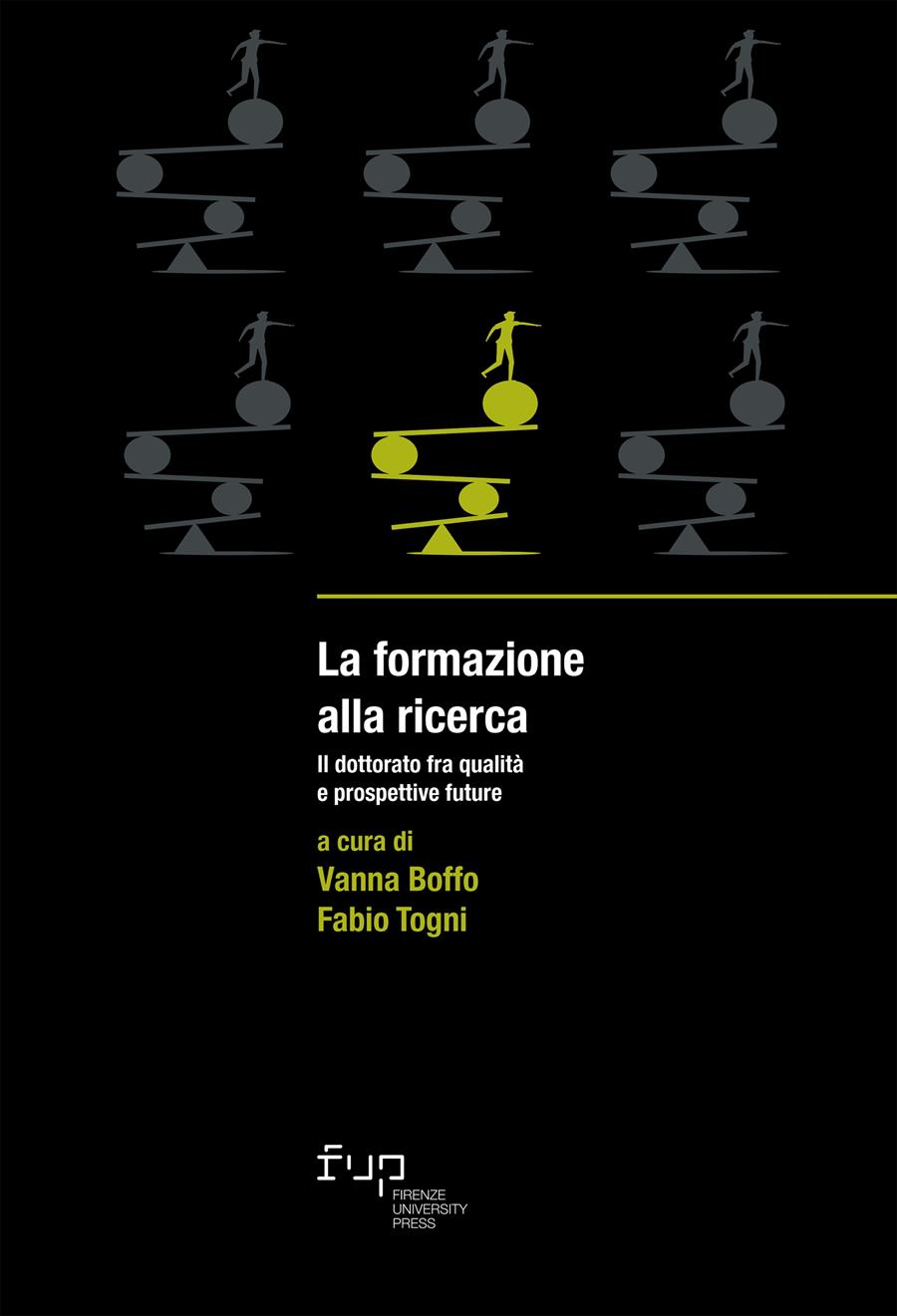- La formazione alla ricerca
- Edited by Vanna Boffo, Fabio Togni
Heritage education e pedagogia del patrimonio culturale: per un approccio olistico e globale
- Marianna Di Rosa
- © 2024 Author(s) |
- CC BY 4.0
- DOI: 10.36253/979-12-215-0504-7.29
The contribution explores the development of educational research on cultural heritage in Italy, comparing it with the European context and focusing on heritage education as an academic discipline. Starting from the semantic variability of cultural heritage, the research highlights the educational potential of a holistic interpretation of cultural heritage—an approach embraced by the italian expression of ‘pedagogia del patrimonio culturale’, a more comprehensive term than the commonly used ‘educazione al patrimonio’. The study outlines a theoretical foundation for heritage pedagogy, emphasizing the role of the university and prospects for future development, promoting a global strategy to reduce the misalignment between theory and practice.
- Keywords:
- Citizenship,
- Community,
- Cultural heritage,
University of Florence, Italy - ORCID: 0000-0003-4511-2455
- Baldacci, Valentino. 2014. “Tre diverse concezioni del patrimonio culturale.” Cahier d’études italiennes 18: 47-59. DOI: 10.4000/cei.1518
- Baldriga, Irene. 2017. Diritto alla bellezza. Educazione al patrimonio artistico, sostenibilità e cittadinanza. Firenze: Le Monnier università-Mondadori Education.
- Bandini, Gianfranco, e Stefano Oliviero, a cura di. 2019. Public History of Education: riflessioni, testimonianze, esperienze. Firenze: Firenze University Press.
- Borghi, Liana. 1964. Scuola e comunità. Firenze: La Nuova Italia.
- Bortolotti, Adriana, Calidoni, Mario, Mascheroni, Silvia, e Ivo Mattozzi. 2008. Per l’educazione al patrimonio culturale. 22 tesi. Milano: Franco Angeli.
- Bouchenaki, Mounir. 2007. “A Major Advance Towards a Holistic Approach to Heritage Conservation: The 2003 Intangible Heritage Convention.” International Journal of Intangible Heritage 2 (1): 105-9.
- Branchesi, Lida, a cura di. 2006. Il patrimonio culturale e la sua pedagogia per l’Europa. Bilancio e prospettive. Roma: Armando Editore.
- Branchesi, Lida, Iacono, Maria R., e Aldo Riggio, a cura di. 2020. Educazione al Patrimonio Culturale in Italia e in Europa. Esperienze, modelli di riferimento, proposte per il futuro. Roma: MediaGeo.
- Consiglio d’Europa, Comitato dei Ministri. 1998. Raccomandazione R (98) 5 agli Stati Membri in tema di educazione al patrimonio.
- Copeland, Tim. 2006. Citoyenneté démocratique européenne, pédagogie du patrimoine et identité. Strasbourg: Council de l’Europe.
- De Bartolomeis, F. 1983. Scuola e territorio. Verso un sistema formativo allargato. Firenze: La Nuova Italia.
- Della Pergola, Paola. 1961. “I musei e la loro impostazione didattica.” Rassegna Sovietica 6: 51-57.
- Dewey, John. 1980. Art as Experience. New York: Perigee Books.
- Di Capua, Viviana. 2021. “La Convenzione di Faro. Verso la valorizzazione del patrimonio culturale come bene comune.” Aedon. Rivista di arti e diritto on line 3: 162-71. DOI: 10.7390/102983
- Galeotti, Glenda, Del Gobbo, Giovanna, e Francesca Torlone. 2018. Le valenze educative del patrimonio culturale. Riflessioni teorico-metodologiche tra ricerca evidence based e azione educativa nei musei. Roma: Aracne Editore.
- Gardner, Howard. 1994. The Arts and Human Development: A Psychological Study of the Artistic Process. New York: Basic Books.
- Gibbs, Kirsten, Sani, Margherita, e Jane Thompson, a cura di. 2007. Musei e apprendimento lungo tutto l’arco della vita. Un manuale europeo. Ferrara: Edisai.
- Hein, George E. 1995. “The Constructivist Museum.” Journal of Education in Museums 16: 15-17.
- Hooper-Greenhill, Eilean. 2007. Museums and Education. Purpose, Pedagogy, Performance. London-New York: Routledge.
- International Council of Museums (ICOM). 2022. “Museum definition”. <https://icom.museum/en/resources/standards-guidelines/museum-definition/> (2024-02-01).
- Kolb, David A. 1984. Experiential Learning: Experience as the Source of Learning and Development. Englewood Cliffs, NJ: Prentice-Hall.
- Lollobrigida, Consuelo. 2010. Introduzione alla museologia. Storia, strumenti e metodi per l’educatore museale. Firenze: Le Lettere.
- Sabatini, Marina. 2022. “L’Università per l’educazione al patrimonio culturale: tra storia, possibilità e prospettive.” Il Capitale culturale 25: 585-602. DOI: 10.13138/2039-2362/2766
- Salvo, Simona. 2018. “Più che moderno, contemporaneo. Riegl e la tutela del patrimonio culturale nell’ultima decade.” Conversaciones… 5: 319-26.
- Satta, Gino. 2013. “Patrimonio culturale.” Parolechiave 21 (1): 19-30.
- Sciacchitano, Erminia. 2015. “L’evoluzione delle politiche sul patrimonio culturale in Europa dopo Faro.” Citizens of Europe. Culture e diritti, a cura di Lauso Zagato, e Marilena Vecco, 45-62. Venezia: Edizioni Ca’Foscari.
Chapter Information
Chapter Title
Heritage education e pedagogia del patrimonio culturale: per un approccio olistico e globale
Authors
Marianna Di Rosa
Language
Italian
DOI
10.36253/979-12-215-0504-7.29
Peer Reviewed
Publication Year
2024
Copyright Information
© 2024 Author(s)
Content License
Metadata License
Bibliographic Information
Book Title
La formazione alla ricerca
Book Subtitle
Il dottorato fra qualità e prospettive future
Editors
Vanna Boffo, Fabio Togni
Peer Reviewed
Number of Pages
320
Publication Year
2024
Copyright Information
© 2024 Author(s)
Content License
Metadata License
Publisher Name
Firenze University Press
DOI
10.36253/979-12-215-0504-7
ISBN Print
979-12-215-0503-0
eISBN (pdf)
979-12-215-0504-7
eISBN (xml)
979-12-215-0505-4
Series Title
Studies on Adult Learning and Education
Series ISSN
2704-596X
Series E-ISSN
2704-5781
